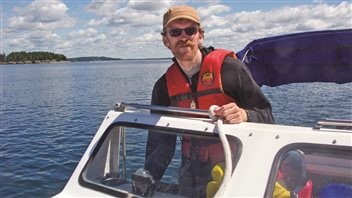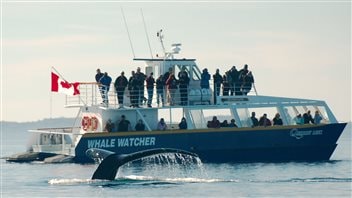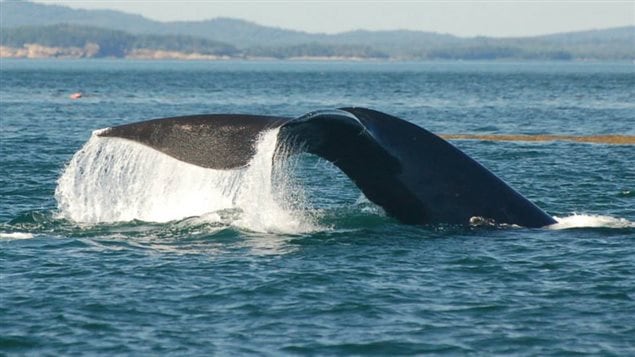The proposed Energy East Pipeline Project would pose “a major risk” for the Bay of Fundy and Gulf of Maine, says the Conservation Council of New Brunswick. The eastern Canadian conservation group released a report on risks to what it calls one of the most productive and diverse marine ecosystems in the world.
The pipeline would be 4,600 kilometres long and would carry 1.1 million barrels a day of bitumen from western Canada to refineries in the east. It would terminate at the entrance to Saint John Harbour in the eastern province of New Brunswick. The petroleum product would be loaded onto tankers for shipment to world markets.

‘Tar balls’ could affect scallops, lobster
“The good studies we’ve had so far suggest that if bitumen spills in salt water, especially in conditions with heavy current like the Bay of Fundy, instead of floating on top of the water…it’s likely to sink and form tar balls,” says the council’s Matthew Abbott.
“That’s of special concern to the fisheries here. Our two major fisheries are for scallops and for lobster which are bottom-dwelling species and so particularly susceptible to oil that sinks.”
ListenWhales already ‘have to shout’
The pipeline would bring increased tanker traffic which is a threat to marine species including the North Atlantic right whale, the most endangered large whale in the world.
“(It) comes to the Bay of Fundy to find its mate, to feed, to raise its young for part of the year,” says Abbott. “And we know that already with existing levels of traffic, these whales are experiencing significant levels of stress and that they already have to shout to speak to each other when they’re in the Bay of Fundy.” An increase of traffic would be a major concern because of noise but also because of the increase risks of ship hitting whales.

‘It’s a special place’
There is also worry about the impact of the project on tourism. “People want to come here because it’s a special place, says Abbott. “And there’s nothing that damages a reputation more than a spill of the dirtiest oil on earth.”
The Bay of Fundy has some of the highest tides in the world and sometimes thick fog. These can make it hard to clean oil spills. The report notes one in February 2007 that was not assessed or found because of adverse weather and fog.
Risk/benefit analysis requested
The council recommends more research on the impacts of increased traffic and possible spills, and it wants the government to create a coastal area management plan for the Bay of Fundy.
Abbott says there needs to be an accurate risk/benefit analysis before the project can go ahead: “Our research and our knowledge and our conversations with people in fisheries and tourism and those who rely on this ecosystem (suggests) that once we do that research it’s very likely that the risks will far outweigh the benefits.”







For reasons beyond our control, and for an undetermined period of time, our comment section is now closed. However, our social networks remain open to your contributions.